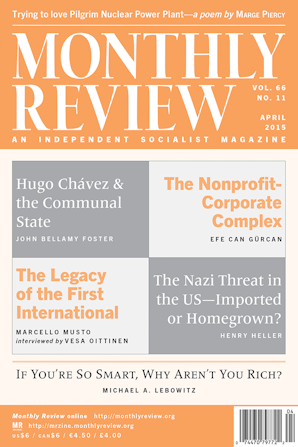Also in this issue
- Chávez and the Communal State: On the Transition to Socialism in Venezuela
- If You're So Smart, Why Aren't You Rich?
- The Nonprofit-Corporate Complex: An Integral Component and Driving Force of Imperialism in the Phase of Monopoly-Finance Capitalism
- Trying to love Pilgrim Nuclear Power Plant
- The Nazi Threat in the United States: Imported or Homegrown?

